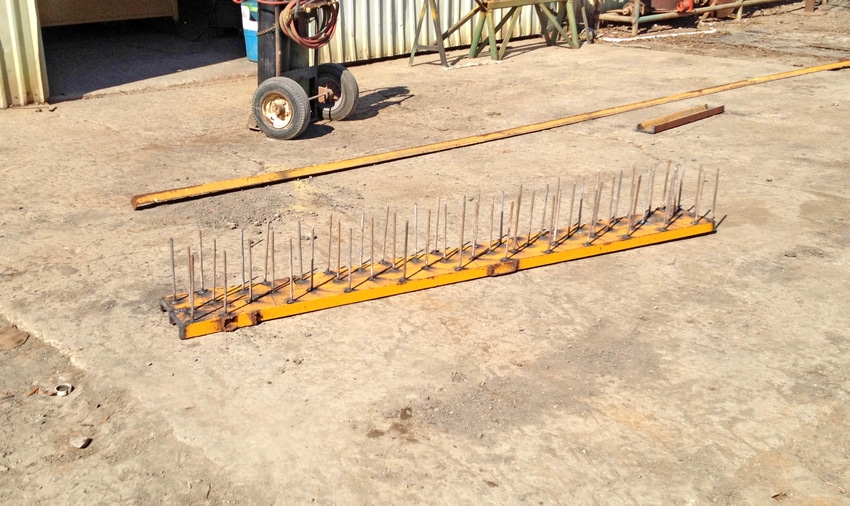
“Get a Rope” was often the law of the lawless frontier west of the 1880s. There are laws today to protect people and property, but thieves still roam the range today and people sometimes have to protect themselves and their property. It’s not equine being stolen. It's more likely copper wire.
April 27, 2012

In the old West, if a fellow got caught stealing a man’s horse, the thief would likely be invited to an impromptu necktie party.
“Get a Rope” was often the law of the lawless frontier West of the 1880s. There are laws today to protect people and property, but thieves still roam the range today and people sometimes have to protect themselves and their property. It’s not equine being stolen. It's more likely copper wire. That is just as bad as stealing a man’s mount since copper wire is often associated with irrigation pumps which supply water to crops, which will die without the water.
The frustration with copper thieves reached the point that a young northern San Joaquin Valley farmer took steps to help the law catch his thieves. Cannon Michael of Bowles Farming in Los Banos, Calif., made it difficult for the crooks to elude the law with two of the four tires on their getaway truck shredded by spikes.
“Copper wire theft has been a big problem for us for the past few years,” said Michael, the sixth generation of his family to farm at Bowles where the primary crops are cotton, alfalfa, processing tomatoes and grain.
“The amount of wire stolen is usually pretty small, but the damage done is extensive and very expensive to fix,” he said.
Earlier this spring, Michael had enough when a particular electrical pump installation on the farm was hit for the third time. This particular hot spot for thievery was in the middle of the 10,000-acre farm where “there is no reason for anyone to be there except our people.”
It’s clearly posted as no trespassing, private property.
Michael borrowed a page from law enforcement and had the farm’s shop make a pair of “pretty nasty spike strips” he buried in the access road to the pump.
Late this month (April) the maintenance supervisor of the local irrigation district spotted a small pickup with two, well-shredded front tires.
“He knew about the spike strips, so he sent one of his crew to look at the panel that the strips are protecting. Sure enough the wire had been stolen, and the damage had been done to the panel.”
The sheriff responded and arrested the two thieves.
Spike strips
“We lost 22 feet of irrigation water because of these crooks, and if it had been in the middle of the summer this loss could have led to serious crop damage — maybe in the hundreds of thousands of dollars. This is not a minor crime, but is a big deal and no one is doing anything to stop it.”
“It just made my day when those tires were blown out and arrests were made,” said Michael. “We have very few victories against these thieves, and it was satisfying to know that we had ruined their day for once.”
Michael did not spike the road capriciously. “I have had some people contact me to say that I could be in trouble if someone was injured, even if they were stealing.
“We didn't just do this on some whim. We have had a lot of theft out here in the country, and it just reached a point of real frustration.”
Michael explained that the strips were buried in a unique spot on farm. It was very remote and on maintenance roads no one should be traveling except people who have business there.
“We took care to not put them where we felt any legitimate person would be injured,” he explains. “It is sad that we live in a time when thieves could have more rights than landowners.
“I don't want to be put up as some radical — we are reasonable law abiding and taxpaying people, but we have just been left with no real options.
“I am not just going to keep repairing these pumps so the wire can be stolen over and over again.”
If you want to steal copper at Bowles Farming, better read the new posted signs: "Roads may be spiked, enter at your own risk.”
“It’s getting to be the Wild West, and we have to do something to protect our property,” he adds.
About the Author(s)
You May Also Like





